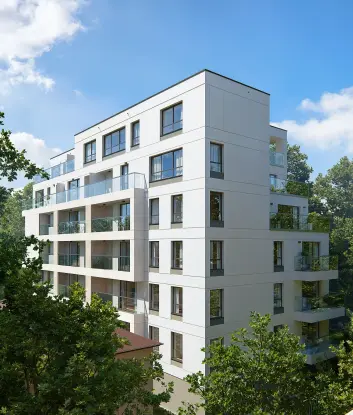Specific real estate market terms
Compendium of concepts and glossary of terms One place where you explain key real estate market concepts: ‘freehold’, ‘mortgage’, “revitalisation” and ‘notary fees’.

A single place where you can find explanations of key real estate terms such as freehold ownership, mortgage, revitalization, or notarial costs.
The real estate market is full of specialized terms that may seem complicated to many buyers or tenants. To help you better understand documents and conversations with a developer, lawyer, or property manager, we have prepared a glossary of the most important terms. In one place, you will find short, clear explanations of key concepts – from ownership forms, through procedures and costs associated with purchasing, to terms used in property management.
Glossary of terms
- Freehold ownership — a form of ownership in which the owner has full and exclusive rights to the property and the land beneath it, with no time limitations or separate perpetual usufruct fees.
- Cooperative ownership right to premises — a right to occupy a dwelling granted by a housing cooperative; it is not full ownership — the land belongs to the cooperative, and the member pays maintenance fees and may eventually buy the land share.
- Perpetual usufruct — the right to use land for a specified (usually 99-year) period, with annual fees paid to the landowner (most often the State Treasury or municipality).
- Mortgage — a security interest (e.g., for a bank loan) in a property; if the borrower fails to repay, the bank has the right to satisfy the debt from the property through forced sale.
- Revitalization — the process of renewing historic or degraded urban areas — renovating buildings, modernizing infrastructure, redesigning public spaces, and improving residents’ quality of life.
- Notarial costs — fees related to the notary’s services in preparing a notarial deed (including civil law transaction tax, notarial fee, copies, excerpts), usually paid by the buyer.
- Reservation agreement — a short document that reserves a housing offer for a specified time (7–14 days), often requiring a symbolic deposit — it does not oblige the parties to sign a preliminary agreement.
- Preliminary agreement — a commitment by the parties (the buyer and developer) to conclude the final contract in the future, specifying transaction conditions, dates, amounts, and potential contractual penalties.
- Handover protocol — a document drawn up during the handover of an apartment from the developer, in which the buyer lists all detected defects — based on it, the developer undertakes to rectify them.
- Renovation fund — a monthly contribution paid by owners within a housing community, saved for major renovation works and investments in the building’s common areas.
- Escrow account — a special bank account where the buyer deposits funds, and the developer receives them in tranches after completing specific stages of construction — this ensures protection of the buyer’s money in case of delays or developer bankruptcy.
- APR (Annual Percentage Rate) — the total cost of credit expressed as a percentage of the borrowed amount per year, including all fees, commissions, and interest — the main indicator for comparing bank offers.
- LTV (Loan to Value) — a ratio of the loan amount to the value of the property, expressed as a percentage; the lower the LTV, the usually better the margin and interest rate conditions.
Use this glossary whenever you encounter an unfamiliar term — it will help you make informed decisions and avoid misunderstandings at every stage of the transaction.
Read also
See all

Ivory on sale!
Find out more


